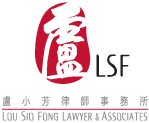Best Corporate & Commercial Lawyers in Macao
Share your needs with us, get contacted by law firms.
Free. Takes 2 min.
List of the best lawyers in Macao, Macao
About Corporate & Commercial Law in Macao, Macao
Corporate and commercial law in Macao encompasses the rules and regulations governing how businesses are established, managed, and regulated within the Special Administrative Region. Macao's legal system is heavily influenced by Portuguese civil law, while also incorporating locally-developed legislation to reflect its unique administrative and economic context. The city is renowned for its tourism and gaming industries, yet it also serves as a dynamic hub for finance, trade, and a variety of commercial endeavors. Understanding the core legal requirements for operating a business or engaging in commercial transactions is crucial for anyone looking to invest, operate, or advise in Macao’s business sector.
Why You May Need a Lawyer
There are several situations in which legal expertise in corporate and commercial law can be vital. Some common scenarios include:
- Establishing or expanding a company in Macao
- Drafting, reviewing, or negotiating business contracts
- Navigating mergers, acquisitions, or joint ventures
- Handling business disputes or litigation
- Complying with licensing, regulatory, or tax obligations
- Protecting intellectual property rights in commercial settings
- Employment law matters within corporate environments
- Foreign investment and cross-border transactions
Due to the nuanced legal requirements and potential risks, consulting a qualified lawyer ensures compliance and minimizes potential liabilities in your business operations.
Local Laws Overview
Macao's corporate and commercial legal framework is grounded in the Commercial Code and various local statutes. Foreign and local entrepreneurs alike must comply with the basic requirements set forth for establishing and running companies, such as registration with the Commercial Registry, obtaining business licenses, and adhering to tax regulations. Macao recognizes several types of commercial entities, including public and private limited companies, partnerships, and branches of foreign companies. Corporate governance, shareholder rights, director responsibilities, and annual reporting duties are all regulated by statute. Distinct laws also deal with contracts, consumer protection, and employment. The Macao Trade and Investment Promotion Institute (IPIM) plays a significant role in facilitating business operations and ensures legal and regulatory compliance for both local and foreign investors.
Frequently Asked Questions
What are the common types of business entities in Macao?
The main business entities in Macao are public limited companies, private limited companies, partnerships, and branches or representative offices of foreign companies. The choice depends on the scale and nature of your business.
How do I register a company in Macao?
To register a company, you must prepare a deed of incorporation, obtain relevant licenses, register with the Commercial Registry, and fulfill tax and labor registration obligations. Legal advice can help you with the process and document preparation.
Can foreigners fully own companies in Macao?
Yes, foreigners can fully own companies in most sectors. However, some regulated sectors such as gaming may have specific licensing and ownership requirements.
What are the key compliance requirements for companies?
Companies must maintain proper accounting records, file annual tax returns, hold shareholder meetings, and comply with employment and consumer protection laws. Non-compliance can lead to penalties or business interruptions.
What is the role of company directors in Macao?
Directors are responsible for managing the company, ensuring legal compliance, safeguarding shareholder interests, and representing the company in legal matters.
How are business contracts enforced in Macao?
Contracts are generally enforceable if they comply with local law, are entered into voluntarily, and do not contravene public policy. Courts in Macao handle commercial disputes and enforce contractual agreements.
Are there restrictions on foreign investment in Macao?
Most industries are open to foreign investment, but regulated fields like gaming hospitality and financial services require specific approvals or licenses.
What are the main taxes applicable to companies in Macao?
The principal tax is the complementary income tax on company profits. Macao has no value-added tax and maintains a relatively simple tax structure compared to neighboring jurisdictions.
How are intellectual property rights protected for businesses?
Macao has dedicated laws for trademarks, patents, copyrights, and designs. Businesses should register their intellectual property to ensure protection under local law.
What should I do if my company faces a commercial dispute?
Seek legal assistance to assess your case and explore dispute resolution options, which may include negotiation, mediation, or court proceedings.
Additional Resources
Below are reputable resources for those seeking more information or assistance with corporate and commercial matters in Macao.
- Macao Trade and Investment Promotion Institute (IPIM)
- Commercial and Movable Property Registry of Macao
- Macao Economic and Technological Development Bureau
- Macao Lawyers Association
- Macao Chamber of Commerce
- Consumer Council of Macao (for consumer rights issues)
Next Steps
If you require legal assistance in corporate and commercial matters in Macao, begin by identifying your specific needs and gathering all relevant documents relating to your business or query. Reach out to a qualified lawyer with expertise in Macao corporate law. Booking a consultation will provide you with tailored legal advice, help you understand your rights and obligations, and ensure that your business activities are in line with local regulations. For further support, consider contacting local government bodies or business associations that can provide guidance or referrals.
Lawzana helps you find the best lawyers and law firms in Macao through a curated and pre-screened list of qualified legal professionals. Our platform offers rankings and detailed profiles of attorneys and law firms, allowing you to compare based on practice areas, including Corporate & Commercial, experience, and client feedback.
Each profile includes a description of the firm's areas of practice, client reviews, team members and partners, year of establishment, spoken languages, office locations, contact information, social media presence, and any published articles or resources. Most firms on our platform speak English and are experienced in both local and international legal matters.
Get a quote from top-rated law firms in Macao, Macao — quickly, securely, and without unnecessary hassle.
Disclaimer:
The information provided on this page is for general informational purposes only and does not constitute legal advice. While we strive to ensure the accuracy and relevance of the content, legal information may change over time, and interpretations of the law can vary. You should always consult with a qualified legal professional for advice specific to your situation.
We disclaim all liability for actions taken or not taken based on the content of this page. If you believe any information is incorrect or outdated, please contact us, and we will review and update it where appropriate.
Browse corporate & commercial law firms by service in Macao, Macao
Macao, Macao Attorneys in related practice areas.









